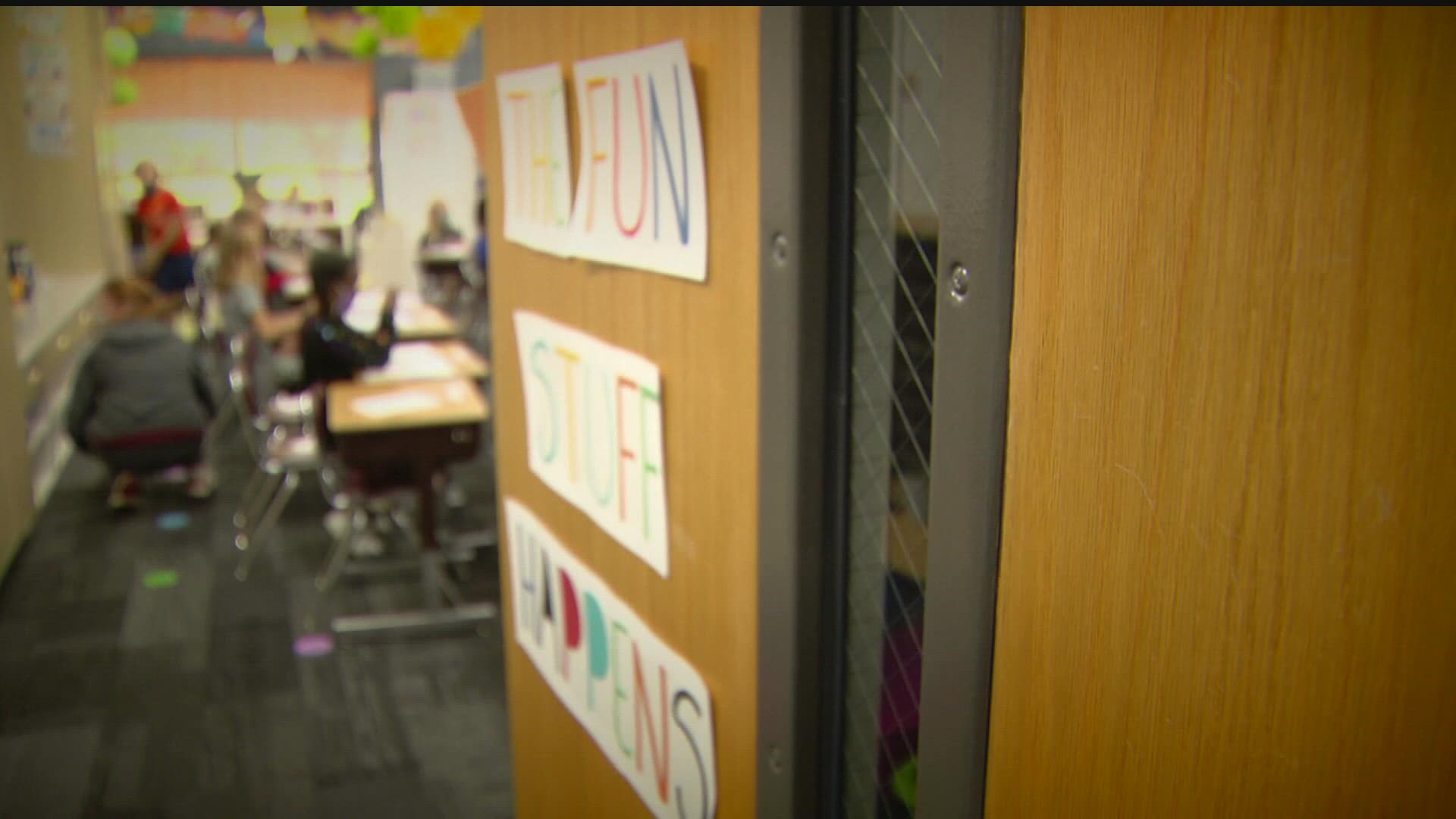ST PAUL, Minn. — New data released Monday in the "Nation's Report Card" by the National Assessment of Educational Progress shows standardized test scores in math and reading have declined sharply in Minnesota and nationwide.
Across the country, math scores saw their largest decreases ever. Reading scores dropped to 1992 levels. Not a single state saw a notable improvement in their average test scores.
State and national education leaders expressed concern about the significant declines, which offered a direct comparison of pre-pandemic student performance in 2019 with this year.
“Let me be very clear: these results are not acceptable,” Education Secretary Miguel Cardona said.
In Minnesota, average eighth-grade math scores fell from 291 in 2019 to 280 this year, one of the largest point declines in the country, and the worst average score for Minnesota in more than three decades (since a 275 average score in 1990). However, Minnesota's average eighth-grade math scores remained in the top 10 nationwide.
Math scores for fourth graders dropped by nine points, from 248 to 239.
Reading scores were also down across Minnesota, but not as much as math. Fourth-grade reading scores fell seven points, from 222 in 2019 to 215 this year. Average eighth-grade reading scores were down four points, from 264 to 260, which does not qualify as a "significant change" in the ratings.
In a statement, a spokesperson for the Minnesota Department of Education (MDE) said the results were not unexpected.
"The most recent data continues trends that we have seen beginning in 2017, prior to COVID," said MDE communications director Kevin Burns. "We expected declines, given the disruption everyone experienced during the pandemic, but that doesn’t make these results easier to see. While Minnesota student scores outpace national scores, we must work diligently to take the necessary steps to help all students, across all grades, achieve."
Republican education leaders in the Minnesota House placed the blame on Gov. Tim Walz and the DFL, citing school closures and remote learning at the start of the COVID-19 pandemic.
"While schools in other states and around the world remained open during the pandemic, in Minnesota, the Governor and his allies in the legislature pushed aside the pleas of parents and students and instead placed the priorities of the teachers’ union and special interests above those of our youngest learners," GOP Reps. Ron Kresha and Sondra Erickson said in a joint statement.
The head of Education Minnesota, the state's largest teacher's union, acknowledged that every district was "touched by this pandemic," but also noted that many schools reopened after the pandemic without enough staff.
“Minnesota educators are working harder than they ever have before, but their working conditions are burning them out,” Education Minnesota President Denise Specht said in a statement. “Losing experienced educators hurts everyone, including students. The NAEP scores are disappointing, but delaying action on the challenges students and educators are facing right now would be much, much worse.”
Specht also told KARE 11 there is a lack of mental health support for students, saying, "Were we dealing with trauma and unmet mental health needs in our schools before the pandemic? Absolutely. But the trauma that children faced during this pandemic made that more acute and we don't have the support and the help that we need in our schools to help them get out of it."
Watch more local news:
Watch the latest local news from the Twin Cities in our YouTube playlist:

